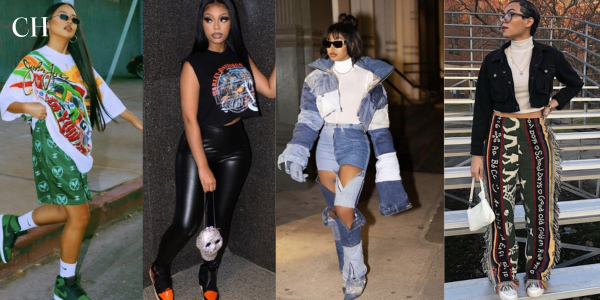
“Black Women’s Street Style” refers to fashion trends and expressions of style in Black communities, particularly in urban areas. This style is frequently influenced by hip-hop culture, urban lives, and streetwear aesthetics.
Analyzing Black women’s street style entails investigating the clothing choices, accessories, and overall fashion sensibility that are common in these areas. Here’s a summary of some important elements:
Urban Fashion:
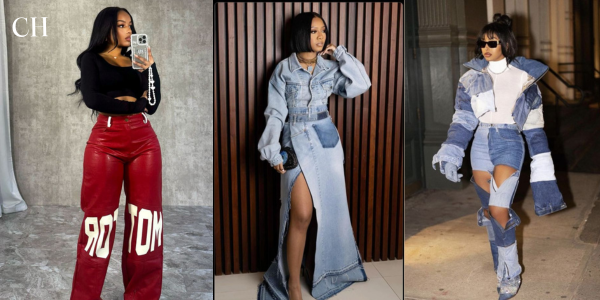
Urban environments, particularly in cities with sizable Black populations, have their own distinct fashion scenes. Black women’s street style frequently reflects the vitality and diversity of these urban environments, infusing elements of city life into their dress choices.
Urban fashion for Black women encompasses a rich tapestry of cultural influences, personal style expressions, and societal narratives. Rooted in the vibrant streets of urban communities and influenced by a fusion of hip-hop culture, African diasporic heritage, and contemporary trends, Black women’s urban fashion is a celebration of resilience, creativity, and individuality.
Hip-Hop Culture:
Hip-hop has had a tremendous impact on Black fashion for decades. Baggy trousers, oversized shirts or hoodies, graphic tees displaying prominent hip-hop artists or logos, and striking accessories such as chunky jewelry or statement sneakers are all examples of black women’s street style.
According to The American Prospect ” Last week, America celebrated the 50th anniversary of hip-hop. Anyone could find their pick of perspectives on the genre, as well as dozens of concerts, festivals, and other events across the country. Amidst the celebration, another headline broke: Daystar Peterson, the rapper known as Tory Lanez, was sentenced to ten years in prison for shooting Megan “Thee Stallion” Pete”

Image Source: The American Prospect
Hip-hop culture has had a significant impact on the fashion choices of Black women in urban areas, functioning as a dynamic statement of identity, empowerment, and innovation. Hip-hop has influenced not just the music industry but also fashion trends and styles around the world, beginning in the Bronx in the 1970s and continuing to have a global impact today. Black women in hip-hop culture have played important roles as artists, influencers, and trend setters, defining fashion narratives with their distinct style and outspoken attitude.
Hip-hop fashion for Black women is distinguished by its aggressiveness, uniqueness, and streetwise attitude, and includes a wide range of looks from baggy trousers and giant hoodies to elegant gowns and spectacular accessories. Black women in hip-hop use fashion to demonstrate their agency, reclaiming spaces and challenge societal norms through their inventive, boundary-pushing style.
Furthermore, hip-hop fashion is a form of cultural expression and unity, highlighting Black culture, tenacity, and innovation in the face of adversity. It’s a tremendous monument to hip-hop culture’s long-lasting influence, with fashion serving as a way of self-expression, empowerment, and cultural preservation for Black women worldwide.
Streetwear Aesthetics:
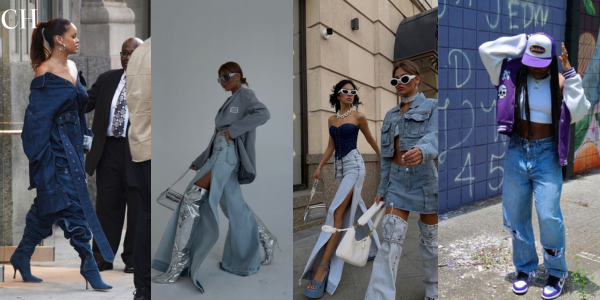
Streetwear aesthetics are a dynamic blend of urban culture, fashion trends, and personal expression that influence the style choices of Black women in metropolitan environments. Streetwear, which has its roots in city streets and subcultures, provides a particularly informal yet trendy approach to clothing, distinguished by an edgy, laid-back atmosphere and an emphasis on comfort and authenticity.
For Black women, streetwear aesthetics provide a platform for self-expression, allowing them to embrace their distinct identities and assert their presence in urban environments. Streetwear aesthetics revolve around flexible wardrobe staples that seamlessly combine sportswear, workwear, and high fashion features. Black women frequently like casual shapes like oversized sweatshirts, graphic tees, and jogger trousers, which provide both comfort and streetwise appeal. Sneakers are a staple of streetwear aesthetics, with Black women expressing their personality through flamboyant footwear choices ranging from classic Jordans to current designer kicks.
Accessories help to elevate streetwear appearances by adding personality and flair to ensembles. Statement elements like bucket hats, chain necklaces, and fanny packs are popular among Black women because they serve as bold touches that complement their overall look. Hairstyles and cosmetic choices also contribute to streetwear aesthetics, with natural hair textures, elaborate braids, and striking makeup looks that compliment urban-inspired clothes.
Cultural Influences:
Cultural influences have an important role in Black women’s fashion choices, particularly in urban contexts where varied cultural origins meet. Black women’s fashion is a dynamic blend of influences, drawing on a rich tapestry of tradition, experiences, and worldwide trends. Clothing styles, accessories, and personal manifestations of identity reflect influences ranging from African diasporic background to the vivid rhythms of hip-hop culture.
Traditional textiles, such as kente or Ankara designs, coexist with streetwear mainstays like oversized hoodies and signature shoes, resulting in a distinct blend of traditional authenticity and contemporary style.
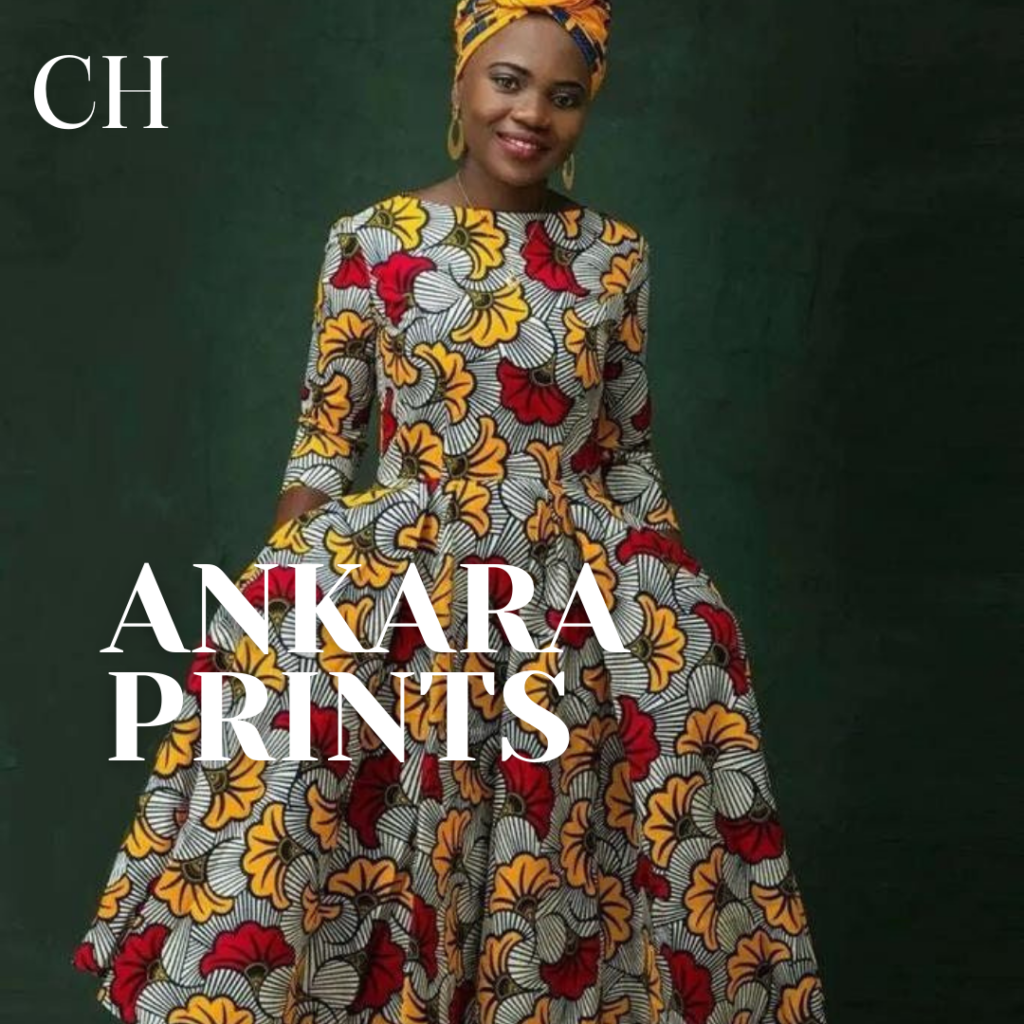
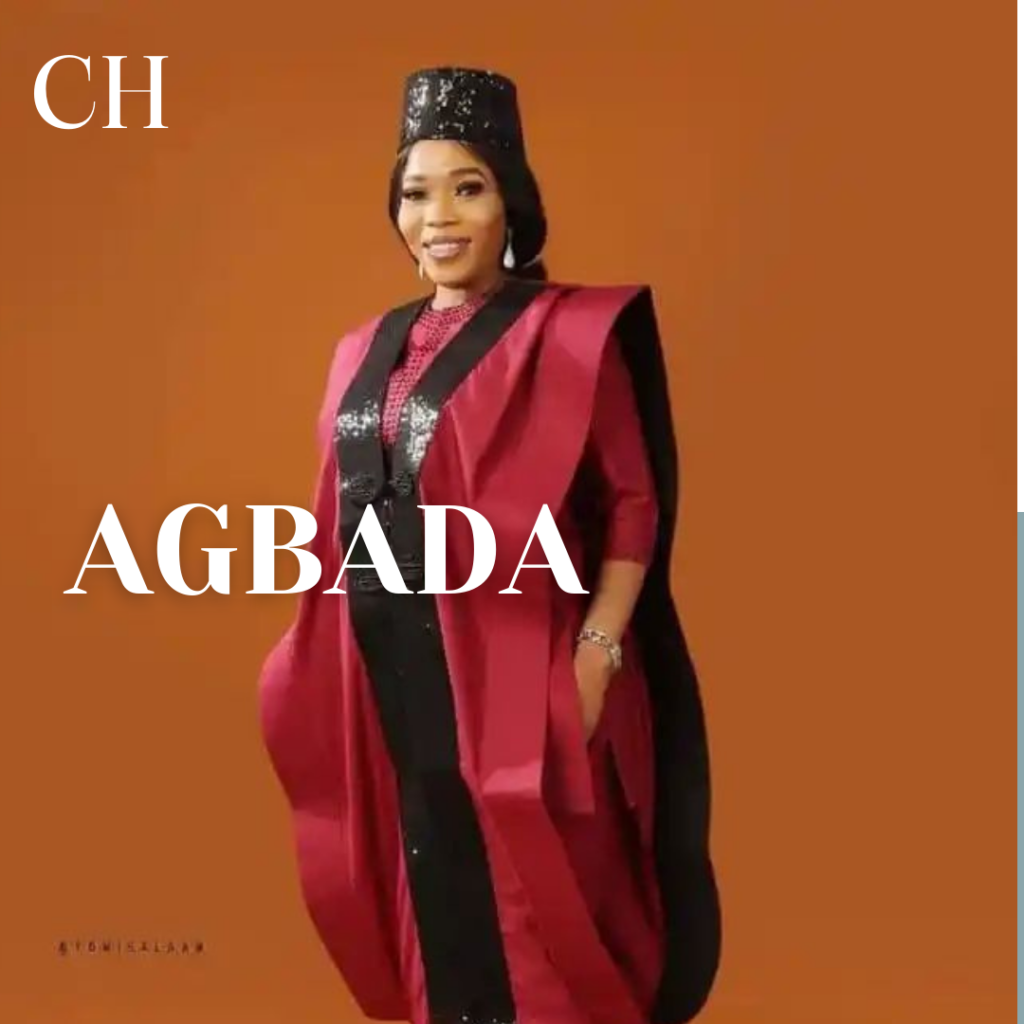
Global fashion movements and community festivities expand this tapestry by allowing Black women to express their creativity while also paying homage to their roots. Whether at a cultural event or navigating the streets of a bustling city, Black women exude confidence and flair, embracing the richness and resilience of their cultural history via their wardrobe choices.
Individual Expression:
While there are similar motifs and trends in Black women’s street style, it is critical to emphasize the importance of personal expression. Street style is used by black women to express themselves, be creative, and assert their identity. They mix and match clothing pieces to create unique ensembles that reflect their personalities and preferences.
Fashion Subcultures:
Various fashion subcultures exist among Black communities, adding to the diversity of street style. This encompasses subcultures such as skater culture, sneaker culture, punk-inspired fashion, and others. Black women may be inspired by these subcultures, combining various components to produce hybrid styles that are distinctly their own.
Overall, studying Black women’s street style entails comprehending the cultural, social, and historical factors that influence their dress choices. It is a dynamic and ever-changing facet of Black culture, expressing the inventiveness, tenacity, and originality of Black women in metropolitan settings.

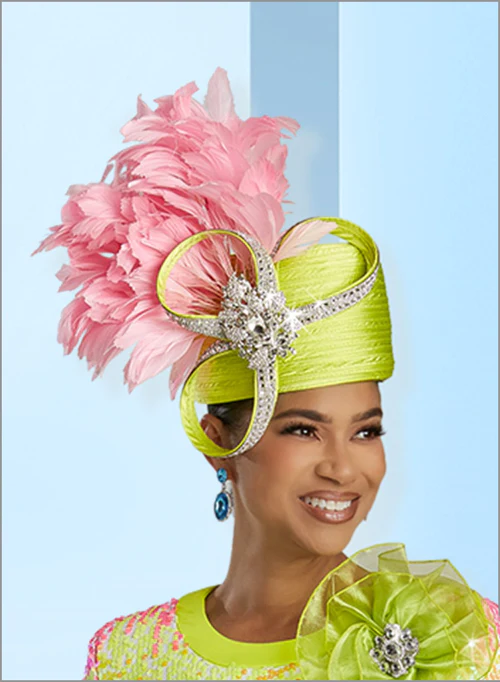
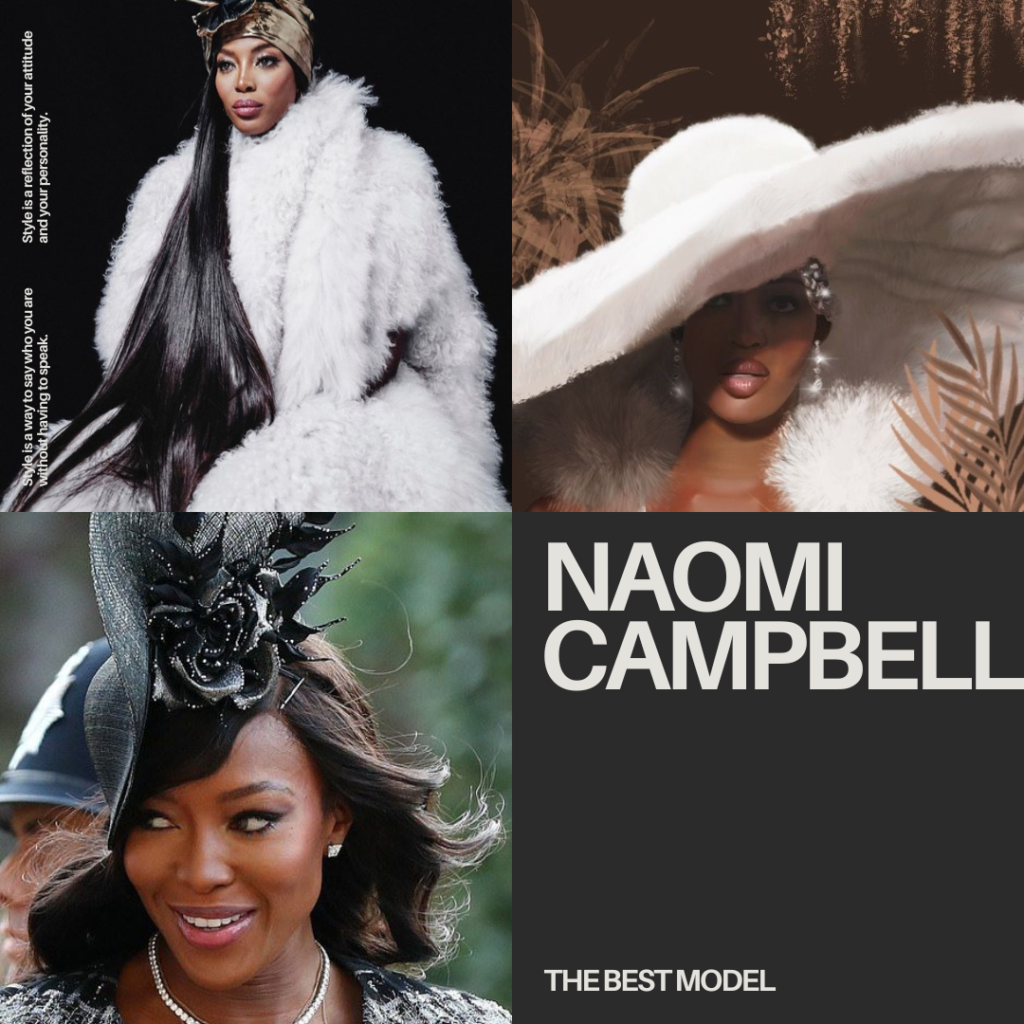
Your point of view caught my eye and was very interesting. Thanks. I have a question for you.